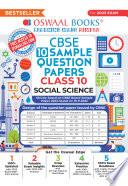NIETZSCHE ’ S
THUSSPOKEZARATHUSTRA
ACriticalGuide
KEITHANSELL-PEARSON
UniversityofWarwick
PAULS.LOEB
UniversityofPugetSound
UniversityPrintingHouse,Cambridge ,UnitedKingdom OneLibertyPlaza, thFloor,NewYork, ,USA
WilliamstownRoad,PortMelbourne, ,Australia
–, rdFloor,Plot ,SplendorForum,JasolaDistrictCentre,NewDelhi – ,India
PenangRoad,#–/,VisioncrestCommercial,Singapore
CambridgeUniversityPressispartoftheUniversityofCambridge. ItfurtherstheUniversity’smissionbydisseminatingknowledgeinthepursuitof education,learning,andresearchatthehighestinternationallevelsofexcellence.
www.cambridge.org
Informationonthistitle: www.cambridge.org/
©CambridgeUniversityPress
Thispublicationisincopyright.Subjecttostatutoryexception andtotheprovisionsofrelevantcollectivelicensingagreements, noreproductionofanypartmaytakeplacewithoutthewritten permissionofCambridgeUniversityPress.
Firstpublished
AcataloguerecordforthispublicationisavailablefromtheBritishLibrary.
Hardback
CambridgeUniversityPresshasnoresponsibilityforthepersistenceoraccuracy ofURLsforexternalorthird-partyinternetwebsitesreferredtointhispublication anddoesnotguaranteethatanycontentonsuchwebsitesis,orwillremain, accurateorappropriate.
[W]hatismoreimportantisthatZarathustraismoretruthfulthan anyotherthinker.Histeaching,andhisalone,hastruthfulnessas thesupremevirtueinotherwords,theoppositeofthe cowardice ofthe ‘idealist’ who fleesfromreality,Zarathustrahasmore courageinhisbodythanallthinkersputtogether.Totellthe truthand toshootarrowswell,thatisthePersianvirtue. Nietzsche, EcceHomo
Contents
ListofContributors page ix
Acknowledgments x NoteonTexts,Translations,andReferences xi
ListofAbbreviations xii
Introduction
KeithAnsell-PearsonandPaulS.Loeb
LaughterAsWeapon:ParodyandSatire in ThusSpokeZarathustra
BenedettaZavatta
PhilosophyAsaWayofLifein ThusSpokeZarathustra
KeithAnsell-PearsonandMartaFaustino
WhatMakestheAffirmationofLifeDifficult?
PaulKatsafanas
Zarathustra’sResponsetoSchopenhauer
ChristopherJanaway
Nietzsche’sNaturalismand ThusSpokeZarathustra
MatthewMeyer
Nietzsche’sSolutiontothePhilosophical ProblemofChange
PaulS.Loeb
Zarathustra’sMoralPsychology
NeilSinhababu
Zarathustra’sGreatContempt
ScottJenkins
TheGreatPoliticsof ThusSpokeZarathustra
PaulFranco
JoyfulTranshumanism:LoveandEternalRecurrence inNietzsche’ s Zarathustra
GabrielZamosc
NietzscheontheRe-naturalizationofHumanityin ThusSpokeZarathustra
KaitlynCreasy
Bibliography
Index
Contributors
- isEmeritusProfessorofPhilosophyatthe UniversityofWarwick.
isAssistantProfessorofPhilosophyatCaliforniaState University,SanBernardino.
isaresearchfellowattheNovaInstituteofPhilosophy (IFILNOVA),whereshecoordinatestheArtofLivingResearchGroup.
isProfessorofGovernmentatBowdoinCollege.
isProfessorofPhilosophyattheUniversity ofSouthampton.
isProfessorofPhilosophyattheUniversityofKansas.
isProfessorofPhilosophyatBostonUniversity.
. isEmeritusProfessorofPhilosophyattheUniversityof PugetSound.
isProfessorofPhilosophyatTheUniversity ofScranton.
isAssociateProfessorofPhilosophyattheNational UniversityofSingapore.
isAssociateProfessorofPhilosophyattheUniversityof ColoradoDenver.
isaphilosophyresearcherattachedtotheInstitut destextesetmanuscritsmodernes(ITEM)inParis,aresearchunit belongingtoCNRSandtheÉcolenormalesupérieure.
Acknowledgments
Wewouldliketothanktheeditorialstaff atCambridgeUniversityPress, especiallyHilaryGaskin,HalChurchman,andThomasHaynes.Weare alsogratefultoourcopyeditorAbigailRothberg.
NoteonTexts,Translations,andReferences
ThefollowingabbreviationsofNietzsche’sworksareusedinthisvolume. ThespecificEnglishtranslationsusedbyeachauthorarelistedina footnoteafterthe firstreferencetoatranslatedpassage.The Bibliographyprovidesacompleteinformationaboutalltranslationsused aswellasallthecitedsecondaryliteratureandthecitedprimarysourcesfor Nietzsche’stexts.InthereferencestoNietzsche’sworks,Romannumerals generallydenotethevolumenumberofasetofcollectedworksorthe standardsubdivisionwithinasinglework,andArabicnumeralsgenerally denotetherelevantsectionnumber. “P” istheabbreviationforthepreface (orinthecaseof Z,thePrologue)toagivenwork(exceptfortheprefaceto the editionof BT).Pagenumbersareaddedwhensectionsarelong, providingmorepreciseinformationabouttherelevanttext.Inciting Nietzsche’sunpublishedfragmentsin KSA,referencesprovidethevolume numberfollowedbytherelevantfragmentnumber.Incaseswhere Nietzsche’sworksarecitedfrom KSA,apagenumberistypicallyprovided. Inciting KSB,thevolumenumberisfollowedbytheletternumber.
Abbreviations
AbbreviationsforNietzsche’scollectedworksintheoriginalGerman
KGBFriedrichNietzsche:Briefwechsel.KritischeGesamtausgabe
KSAFriedrichNietzsche:SämtlicheWerke.KritischeStudienausgabe
KSBFriedrichNietzsche:SämtlicheBriefe.KritischeStudienausgabe
Abbreviationsfortitlesofpublishedworks
AOMVermischteMeinungenundSpru¨che (republishedin in Menschliches,Allzumenschliches II);translatedas Assorted OpinionsandMaxims
BGEJenseitsvonGutundBöse;translatedas BeyondGoodandEvil
BTDieGeburtderTragödie;translatedasThe BirthofTragedy.The “AttemptataSelf-Criticism” addedtothe editioniscited as “Attempt” followedbytherelevantsectionnumber
CWDerFallWagner;translatedas TheCaseofWagner
DMorgenröthe;translatedas Daybreak or Dawn
GMZurGenealogiederMoral;translatedas OntheGenealogyof Morals or OntheGenealogyofMorality
GSDiefröhlicheWissenschaft;translatedas TheGayScience
HHMenschliches,Allzumenschliches;translatedas Human,AllToo Human.Referencestothetwo-volume editionare indicatedbyRomannumerals(HH Iand HH II)
HLVomNutzenundNachteilderHistoriefu¨rdasLeben (UnzeitgemässeBetrachtungen II);translatedas OntheUsesand DisadvantagesofHistoryforLife
RWBRichardWagnerinBayreuth (UnzeitgemässeBetrachtungen IV)
SESchopenhaueralsErzieher (UnzeitgemässeBetrachtungen III); translatedas SchopenhauerasEducator xii
TIGötzen-Dämmerung;translatedas TwilightoftheIdols. Referencesincludeanabbreviatedchaptertitleand sectionnumber.
UMUnzeitgemässeBetrachtungen;translatedas UntimelyMeditations WSDerWandererundseinSchatten (republishedin in Menschliches,Allzumenschliches II);translatedas TheWanderer andHisShadow
ZAlsosprachZarathustra (PartIVoriginallypublishedprivately); translatedas ThusSpokeZarathustra.Inmostofthechaptersin thisanthology,referencesincludethepartnumberinRoman numeralsandanabbreviatedchapternamethatissometimes followedbythesectionnumberinArabicnumerals.For example,(Z:I “Prologue” )referstothethirdsectionofthe Prologue,and(Z:III “Convalescent” )referstothesecond sectionofthechapterentitled “TheConvalescent” inPartIII. Alternatively,referenceslistthepartnumberinRoman numeralsfollowedby “P” for “Prologue” orthechapternumber inArabicnumerals(notincludedinNietzsche’smanuscripts), sometimesfollowedbythesectionnumberinArabicnumerals. Forexample,(Z P:)referstothe firstsectionofthePrologue and(Z III.:)referstothesecondsectionofthechapter entitled “TheConvalescent” inPartIII
Abbreviationsforprivatepublications,authorizedmanuscripts, andunpublishedworks
ADerAntichrist;translatedas TheAntichrist and TheAnti-Christ EHEccehomo;translatedas EcceHomo.Referencesincludean abbreviatedchaptertitleandsectionnumber.Forexample, (EH “Destiny” )referstothethirdsectionofthechapter entitled “WhyIAmaDestiny.” Inthechapterentitled “Why IWriteSuchGreatBooks,” thesectionnumberswithinthe materialdevotedtooneofNietzsche’sbooksisprecededjust bytheabbreviationoftherelevantbooktitle.Forexample, (EH BT:)referstothesecondsectionofthematerialinthe chapter “Books” devotedtoBT
GSt “DergriechischeStaat;” translatedas “TheGreekState” (referencesaretopagenumbers)
ListofAbbreviations
PPP “DievorplatonischenPhilosophen;” translatedas The Pre-PlatonicPhilosophers (referencesaretopagenumbers)
PTAG “DiePhilosophieimtragischenZeitalterderGriechen;” translatedas PhilosophyintheTragicAgeoftheGreeks
AbbreviationsforNietzsche’sunpublishednotebooksandtranslations ofnotebookmaterial
CWFNTheCompleteWorksofFriedrichNietzsche.Forvolumesthat includeNietzsche’sunpublishedwritings,thesearecitedby volumenumberandfragmentnumber;forvolumesthatare translationsofNietzsche’spublishedworks,theyare referencedbytheabbreviationofthetranslatedworkand correspondingyearofpublication
WLNFriedrichNietzsche:WritingsfromLateNotebooks (citedwith pagenumber)
WPDerWillezurMacht;translatedas TheWilltoPower (alwayscitedwiththecorrespondingentryfrom KSA)
Introduction
KeithAnsell-PearsonandPaulS.Loeb
FriedrichNietzsche’ s ThusSpokeZarathustra:ABookforEveryoneandfor NoOne (TSZ)(–)isatextthatwascelebratedbycreativeartists andwritersinthetwentiethcenturyanditcontinuestohaveawide readershipoutsideacademia.Thisbookhasalsobeenappreciatedbysome seminalthinkersinthehistoryofcontinentalphilosophy – notablyMartin Heidegger,EugenFink,KarlLöwith,andGillesDeleuze.However,recent philosophicalscholarshiptendstomarginalize TSZ andtodownplayits significanceinourengagementwithNietzsche’sthought.Thisneglectis nodoubtunderstandable.Thetextisperhapsthebestexamplewehaveof hisself-confessedphilosophicalheterodoxy,andhehimselfpointedoutits unusualrelationtotherestofhiscorpus: “SupposeIhadpublishedmy Zarathustra underanothername,forexample,thatofRichardWagner theacutenessoftwothousandyearswouldnothavebeensufficientfor anyonetoguessthattheauthorof Human,All-Too-Human isthevisionary of Zarathustra” (EH “Clever” ; EH ).
Theaimofthisvolumeistoremedythiscurrentneglectof TSZ by highlightingitsimportanceforafullerunderstandingofNietzsche’ scontributiontophilosophy.Ourhopeisthatthisnewcollectionofessaysby leading figuresintheinternationalcommunityofNietzschescholarswill helpshowwhyhewasrighttoclaimthat TSZ needstoassumeacentral roleinanyinformedappreciationofhisstyleofphilosophicalpracticeas wellasofthefundamentalcontentofhiscoreideas.Wealsoexpectthat thiscollectionwillhelpbring TSZ intobettercontactwiththekindsof questions,problems,anddebatesthatanimatecontemporaryphilosophy.
Morespecifically,thechaptersinthisCriticalGuideseparatelyendeavor to(a)helpexplainNietzsche’sclaimthat TSZ strivestoresolvethe importantproblemsthatareposed,butnotresolved,inhisother,more widelydiscussedtexts(like BGE and GM) – forexample,howtocurethe humandispositiontovengefulthinkingandhowtogivemeaningto humanlife;(b)helpexplainwhyNietzsche’sturntoart,poetry,and
fictionin TSZ iscentraltoNietzsche’sprojectduringthematurephaseof histhinking,forexampleasanewkindofparodicandsatiricalcritique,or asanarrativeexemplificationofcirculartime;(c)helpshowhow TSZ addressesfundamentalphilosophicalproblemsandquestionsthatpreoccupycontemporaryphilosopherstoday,suchastheproblemofpersistence throughchangeorthequestionofhowhumanactionismotivated;(d) helpexplainhow TSZ contributestotheongoingrevitalizationofthe practiceofphilosophyasawayoflife;and(e)helpshowhow TSZ is pertinenttopressingcontemporaryconcerns,suchastheemergenceofa widespreadecologicalconscienceandthedebateabouttranshumanism. Becauseourguidingquestioniswhyphilosopherstodayshouldcare about TSZ,thechaptersinthisbookdonotofferpurelyexegetical treatmentsofthistextanddonotconcentrateonscholarlyquestionsabout theplaceofthistextinthehistoryofphilosophyorinNietzsche’ s philosophicaldevelopment.Also,sincetheCambridgeCriticalGuides areintendedforscholarsandgraduatestudents,theseessaysdonotpresent introductory-leveldiscussions,outlines,orcommentarieson TSZ. Accordingly,thisvolumedoesnotattempttoprovideacomprehensive coverageofNietzsche’stextanditsconcepts,orofthevariousinterpretive controversiesconcerningthistextanditsconcepts.Instead,thefocusisa philosophicaldiscussionoftopicsthatarethesubjectofinteresttodayin the fieldofphilosophyandwithinthecommunityofphilosophical Nietzschescholars.However,werealizethatphilosophicalreaderswho harbormisgivingsaboutthistextanditsconceptsmaybedisinclinedto considerthephilosophicalrelevanceof TSZ.Sowewouldliketoaddress somecommoncomplaintsbeforeweprovideanoverviewofthechapters inthisCriticalGuide.Wehopethatthesebriefframingremarkswill facilitateamoreopen-mindedapproachtoNietzsche’sbookandtothis collectionofessays.
SomeCommonComplaintsabout TSZ
ThusSpokeZarathustra isuniqueamongNietzsche’scentralphilosophical works,andindeedinthehistoryofphilosophy,becauseitisnotwrittenin theauthor’sownvoiceandisinsteadconstructedintheformofabiblical narrativewitha fictionalteachernamed “Zarathustra” takingtheplaceof Jesus.Inthecourseofthisbook,justasintheGospelsoftheNew Testament,thisteacheroffersanextendedstringofspeeches,sermons, parables,andprophesiestothebeloveddiscipleswhohavechosento followhim.Inaddition,thenarrativedepictseventsintheteacher’slife
thatcloselyresembletheeventsintheGospels.Forexample,theprotagonististestedbythedevil(Z III.);heragesagainstself-proclaimedgood andjustpeoplewhoareidentifiedasPharisees(Z III.:);heisaskedto healthosewhoareblindandcrippled(Z II.);hecallshimselfa fisherof menandstruggleswiththedoubtsandapostasiesofhisdisciples (Z IV.; Z III.);likeJesusinthegardenofGethsemane,hesuffers excruciatingself-doubtabouthismissionduringapivotalmomentof solitudeawayfromhisdisciples(Z II.);andhegathersaselectgroup offollowersforalastsupper(Z IV.).Mostimportantly,attheendofthe bookthatNietzschepublishedwithoutPartIV,Zarathustraexperiencesa self-sacrificingmartyrdomandcrucifixionthatallowshimtoredeem humankindfromallsin(Z III.:, Z III.) – afterwhichheisresurrected toliveagainforallofeternity(Z III.:, Z III.). Atcertainpointsinthis bookthatNietzschecalledhis “Testament” or “fifthGospel” (KSB : , ),thereevenappearsanarrativevoicethatishistoricallydistantfromthe eventsinthestory,thusimitatingthedifferentkindsofnarrativevoicesand sourcesintheNewTestamentcompilation(Z IV., Z IV.:).
Confrontedwithsuchastrangedesign,manyphilosophers,historiansof philosophy,andevenscholarsofNietzsche’sphilosophyhavebeenataloss astohowtoapproachthisbookandhavetendedtomarginalizeit,dismiss it,orjustignoreitaltogether.Thereasonsfortheirresistanceandnegative valuationarenothardtounderstand.SincefewofthemareChristian,they seenoreasontoinvestigatethedetailsofsomeimitationorparodyofthe Christianbible.Also,theyarenottrainedasliterarycritics,muchlessas biblicalexegetes,andtheyhavelittleinterestindoingthebackground workthatwouldhelpthemtounderstandandappreciatetheuniquestyle ofthisbook.Perhapstherewasatimewhenthisbookfeltcompellingtoa majorityofphilosopherswithaChristianbackground,butthattimeis longgone – maybeevenduetothetremendousearlyinfluenceofthisvery book. ItisallwellandgoodthatreadersoftheBiblearepersuadedby image-ladenallegories,sermons,andparables,butthisisanathemato philosopherswholookforlogic,reason,andargumentation.Mostofwhat
SeeLoeb(: –, –);andLoeb(b).
ThisisnottheonlyliterarymodelforNietzsche’sdesign,butitiscertainlythedominantone.Other literaryandartisticmodelsincludeancientBuddhistlore,ancientGreekandPersianmythology,the Homericepics,theOldTestament,ancientGreektragediesandsatyrplays,Pindar’sodes,Plato’ s philosophicaldramas,Menippeansatire,Lucretius’ philosophicalpoem,Goethe’ s Faust,Emerson’ s essays,Hölderlin’spoeticnarratives,andWagner’soperas.Seealsothehelpfulexplanatorynotesin Parkes().
SeeGadamer().
Nietzsche’sprotagonistsaysisconveyedwithanairofauthoritythatis supposedtocompelourassent,butthisisjustwhatAristotlelongago calledthelogicalfallacyofappealingtoauthority.Moreover,Nietzsche himselfteachesthatChristianityisacompletelybankruptsystemof thought,sowhystudyabookthatisbasedontheparadigmforall Christianthinking?Indeed,sincewecansimplyreadNietzsche’slater works – inwhichhecommunicatesthesamethings,butthistimeinhis ownvoice,andthankfullywithamuchclearerlogic – whybotherwiththis bizarrebiblicalpalimpsest?ThisisespeciallythecasesincethephilosophicalbooksthatNietzschewroteafterward,notably BGE and GM,presumablyconveyamoredevelopedandsophisticatedversionofhisearlier Zarathustra ideas – ideassuchasthevengefulinspirationofmoraljudgmentandthepost-Christiannihilisticpredicament.PerhapsNietzsche wrote Zarathustra soastobettercommunicatewithamuchwideraudienceoutsidetheworldofacademicallytrainedphilosophers(KSB : ), inwhichcasethisisallthemorereasonforsimplypassingitoverinfavor ofthoselaterworksthathewroteespeciallyforphilosophers.Inanycase, asoneNietzschescholarhasrecentlycommented,thereissomething aestheticallyunpleasantaboutthewholeliteraryexercise:
Inlinguisticstyle,ithasanaffected,archaicair,withresonancesoftheLuther Bible.Oneofthekeyinterpretivequestionsiswhetheritisaparodyofa religiousbook,ormeanttobetaken ‘straight,’ asakindofquasireligious mysticaloutpouring.Myownviewisthatitisdownrightunbearable(some choicepassagesaside)unlessonetakesitasaratherarchsendupofareligious book,andeventhenitistoughgoing.(Huddleston : )
Theseareallseriousworriesaboutthebookthatisthesubjectofthis CriticalGuide.Nevertheless,wethinkthereisanappropriateresponseto befoundintheextendedadviceNietzscheofferedforunderstandinghis book.Forthemostpart,thisadvicecanbefoundin EcceHomo,wherehe presentsareviewofhislifeandphilosophicalcareer.Indeed,itisquite strikingthatNietzschespendsmostofhistimein EcceHomo introducing, quoting,explaining,praising,andcelebrating TSZ ashismostimportant book.Hegivesmanyreasonsforthisclaim,includingespeciallyits extraordinaryaestheticqualitiesandtheintensityoffeelingthatinspired itscomposition.Butforourpurposeshere,whatmattersmostishis assertionthatthisbookistheonlyplacewherehepresentstheconstructive
SeealsoGadamer(),Tanner(),andHuddleston().
andaffirmativesolutionstothequestionsandproblemsheposesinthe critical,skeptical,andpolemicalbooksthatcamelater(EH:BGE).His mostprecisestatementofthispointishisclaimthatonly TSZ contains thecounter-idealtotheasceticidealthatheexplains,diagnoses,and criticizesinthethirdessayofhis GenealogyofMorality (EH:GM).This statementissupportedbyhisclaimattheendofthesecondessayof GM thatonlyZarathustrawillbeabletoredeemrealityandhumankindfrom thecurseplaceduponthembythisasceticideal – thatis,fromthegreat nausea,fromthewilltonothingness,fromnihilism.OnlyZarathustrawill beabletoliberatethewillandonceagaingivetheearthitsgoalandhope tohumankind.Infact,Nietzscheevenconcludesthissecondessayby deliberatelysilencinghisownauthorialvoiceforfearthathewillinterfere withtheredemptivetaskthatcanonlybeaccomplishedbythesuperior teacherheenvisionsarrivinginastrongerandhealthierfuture(GM II:–).
Itistrue,then,thatNietzschedistanceshimselffromhis fictional protagonist – butnot,asmanycriticsassume,becausehedoesnotfully endorsehisprotagonist’sphilosophicalviews.Instead,itisbecausehe thinksthattheseviewsareactuallysuperiortohisownviews,thatis,to theviewsheteachesinhisownvoiceintheworkshewroteafter TSZ. Givenwhathesaysin EH,thismeansthathethinksofhisownphilosophicaltaskasmerelycritical,notconstructive.Intermsofthedistinction,hedefendsin BGE ,thismeansthathethinksofhimselfasa philosophicallaborerwhoisonlyabletopreparethegroundforgenuine philosopherswhoareabletocreatenewvalues.Heinvestigateshistorical origins,codifiespastvalue-creations,offersmethodologicalarguments,and criticizestheideasofhiscontemporaries.Hepresentscredibleandarduous intellectualprocessesofinquiry,aswellasskepticalandirreligiousmodes ofthinking – includingofcourse,andespecially,hissavagecritiqueofthe Gospels(A –).Butthegenuinephilosopherofthefuture,whois envisionedonlyin TSZ,issomeonewhowillmakeuseofallthese preliminarylaborsinordertoissuecommandsandlawsthatwilldeterminethedestinyandpurposeofhumankind(BGE ; KSA :[], KSA :[]).ThisiswhyNietzschepresentshis fictionalprotagonistas anauthoritativepedagogicaloratorratherthanasacontemplativethinkerwriterwhoofferslogicalanalysesandarguments.Again,thisisnotbecause theselogicalanalysesandargumentsareabsent.Instead,Nietzschewants ustokeepinmindeverythinghehastaughtusinhislaterbooksasthe essentialsupportandbackground – indeed,asthelaunchingplatform – for
Zarathustra’scentralteachings. Forexample,weshouldkeepinmind everythinghehastaughtusinhispost-Zarathustra worksaboutthe inherentweaknessandillnessofhumankindasthebackgroundfor Zarathustra’sinauguralcommandandlawthatthehumanspeciesshould sacrificeitselfforthesakeofastrongerandhealthiersuperhumanspecies (Z P:–).AccordingtoNietzsche,allthephilosophicallaborinhislater booksispresupposedbyZarathustra’screationofnewvaluesthatareno longercentered,ashasalwaysbeenthecasebefore(JS ),aroundthe survivalandpreservationofhumankind. Thisnewcommandintroducesa newmeaningandgoalforhumankindthatredeemsitfromtheChristian asceticidealandfromthegreatnausea,nihilism,andwilltonothingness thatgrewoutofthisideal.
Itisnocoincidence,then,thatNietzschebeginshis Zarathustra narrative withthehermitsainttellingZarathustrathatGodisalreadydead(Z P:). ForNietzschethinksthathisownaccelerationofthecollapseofthe year-oldsystemofChristianbeliefisrequiredbeforeZarathustra’sfuture millennialprojectcanbegin.In GM II:– Nietzschebaptizeshisprotagonist,whomheelsewherecallshissonandheir(KSB : ),as “the Antichrist,”“theconquerorofGod,” and “ZarathustratheGodless.” Thisis becauseZarathustra’sphilosophicalinventionofnewvaluesthatarecenteredaroundtheself-overcomingofhumankindisthewholekeytodispellingalltheremainingshadowsofGod.Thus,farfrombeinganewkindof religiousbook,ora “quasi-religious-mysticaloutpouring,” TSZ issupposed torepresenttheultimatetriumphofphilosophyoverreligion – ofDionysus overtheCrucified(EH “Destiny” ).WhenNietzschetellsusthathis Zarathustra bookcametohimasakindofdivinelyrevealedtruth(EH Z:, ),thishasnothingtodowiththekindofreligiousrevelationthatis claimedasthesourceofthebiblicaltextsheisimitatingandparodying. WhathehasinmindinsteadisthephilosophizinggodDionysus(BGE –)whoisthe circulusvitiosusdeus andthepersonificationofcosmic eternalrecurrence(BGE ).
Thisbringsusback,then,toNietzsche’sreasonforrepurposingthe ChristianNewTestamentasameansofcommunicatinghismostimportantphilosophicalinsights.Inthe firstplace,theseareinsightsthathedoes notwanttocommunicateinhisownvoicebecausehewouldthenbe
HenceNietzsche’sremarkin TheAntichrist thatZarathustra,likeallgreatintellects,isaskeptic (A ).Forfurtherdiscussionofthispoint,seeAnsell-Pearson().
Forfurtherdiscussionofthispoint,seeLoebandTinsley(: –)andLoeb(b).
SeeLoeb(: –, ).
usurpingandunderminingthetaskthatdemandsastrongerandhealthier philosopherinthefuture.Inparticular,Nietzscheconfessesin EcceHomo thathehimself,havingbeencorruptedbynineteenth-centuryGerman “idealist” culture,isnotstrongenoughtocommandtheself-overcomingof humankindorhealthyenoughtoaffirmtheeternalrecurrenceofhisown life.Still,heisabletoextrapolatefromhisownweaknessesandpathologies inordertoenvisionwhatkindoffuturephilosopherisrequiredtodothese things. Indeed,hesuggests,thisveryactofdepictingtheheirtohislegacy mightbesufficienttocallforththisphilosopher.Someexceptionally strongandhealthyhumanbeingsinthefuturemightbeseducedinto crowningthemselveswiththename “Zarathustra.” SoNietzscheasked himselfwhatwouldbethebestliterarymeansofluringthese figurestohis side.Andhisanswerwasthatheshouldappropriatethemostwidely-read andintensely-studiedbookeverwritten – indeed,theverybookthat occasionedtheinventionoftheprintingpress.Notonlywouldhebeable tocountonhisreadersalreadyknowingthisbookalmostbyheart,he wouldalsobeabletobypassthevagariesofacademicfashion,intellectual squabbling,andivory-towerobscurity.Inaddition,asBenedettaZavatta explainsintheopeningchapterofthiscollection(Chapter ),Nietzsche sawthatthischoicewouldallowhimtoexpelfromtheGospelsthe religiousmeaningsofitsoriginalwritersandinfusetheminsteadwith hisownnewphilosophicalmeanings.Forexample,hehasZarathustra teachthatJesus’ ideaofturningtheothercheekisactuallyinspiredby vengefulmotivesandmustbeleftbehindifweareevertoovercomethe spiritofrevenge(Z I.).Whatbetterwaytoseducehisreadersawayfrom theheartandsouloftheChristianasceticidealandtowardhisnewpostChristiangoalofhumankind’sself-overcoming?Indeed,inthenoteshe wrotewhilecomposing TSZ,Nietzscheexplainsthathisappropriationof Luther’slinguisticstyleandofthepoeticformoftheBibleiswhat especiallyallowshimtoaccomplishthisseduction:
Lastly:we[Germans]arestillvery young .Ourlastmajoreventisstill Luther, ouronlybookisstillthe Bible.[...]Forcontinualrepetition [[ etc.therhythmofrhymedverse, we aremusicallytoosophisticated(aside frommisunderstoodhexameter!)HowbeneficialthepoeticformofPlaten andHölderlinhasbeentousalready!Butmuchtoostrictforus!Playing withthemostdiversemetersandoccasionallyunmetricalverseistheright thing:thefreedomthatwehaveachievedalreadyinmusicthrough
Forfurtherdiscussionofthispoint,seeLoeb(a).
RhichardiWhagneri!wecancertainlytakethisforourpoetry!Inthe final analysis:itistheonlykindofpoetrythatspeaksstronglytoourhearts! ThankstoLuther![...]ThelanguageofLutherandthepoeticformofthe BibleasthebasisforanewGerman poetry:thisis my invention!Making thingsclassical,therhymeschemeisallwronganddoesnotspeak profoundlyenoughtous:notevenWagner’salliteration!(KSA : [, ]; CWFN : )
ReturningnowtothelistofstandardcomplaintsaboutNietzsche’ s book,wecanseethattheydependonvariousmisunderstandings. StudentsofNietzsche’sphilosophywillnot findwhathethinksarehis mostimportantinsightsanywhereoutsideof TSZ.Theseinsightsarenot inanywaysupersededbywhathewroteinhislaterworks.Infact,hetells us,theselaterworksareallmerelycriticalandskepticalanalysesthatpose questionsandproblemsthatawaittheirresolutionintheideashehad alreadypresentedin TSZ.ScholarsoftenciteNietzsche’sremarksthathis laterworkssaythesamethingsas TSZ,althoughverydifferently (EH “Destiny” ; KSB : ),buthedoesnotmeanbythisthat TSZ saysthesamethingsastheselaterworks.Andinfactitdoesnot,because thetwomostimportantideasinthisbook – theself-overcomingof humankindandtheeternalrecurrenceofthesame – arenotrevisited againinthetextswrittenafterward(theyareonlymentionedoralluded to). Again,thisdoesnotmean,assomescholarshavesupposed,that Nietzscheabandonedtheseideasaftercompleting TSZ. Instead,heheld theminreserveforreaderstostudyoncetheyhaddigestedhisdevastating critiqueoftheirmostcherishedmoderndogmas.Thesetwocentralideas canbestbeunderstoodbyphilosophicalreaderswhotakethetimeandthe
Seealso BGE : “ThemasterpieceofGermanproseistherefore,fairlyenough,themasterpieceof itsgreatestpreacher:the Bible hassofarbeenthebestGermanbook.ComparedwithLuther’sBible almosteverythingelseismere ‘literature’—somethingthatdidnotgrowinGermanyandtherefore alsodidnotgrowanddoesnotgrowintoGermanhearts:astheBibledid” (BGE ).
Recently,ithasbecomecommonpracticeforscholarstoresttheirwholeinterpretationofeternal recurrenceonthemerepreviewofthisdoctrinethatNietzscheofferedinasingleparagraphof The JoyfulScience (JS ).SeeLoeb(, )foracritiqueofthisattempttoavoiddiscussingthe book-longtreatmentofthisdoctrinein TSZ.SeealsoLoeb(, b)foracommentaryon TSZ thatshowshoweternalrecurrenceinformsnotjustZarathustra’steachingsaboutthisdoctrine butalsothechronologicalnarrativeofthebookasawhole.
Bycontrast,Nietzsche’slatertextsdoincludeasubstantial,andinsomerespectsmore sophisticated,treatmentoftheothermostimportantideain Zarathustra,thewilltopower.See Loeb(a).
ForacritiqueoftheinterpretivesuggestionthatNietzschehasZarathustraabandonhisidealofthe Übermensch asthenarrativeof TSZ progressesandthatthisidealplaysnoroleintheworkshewrote after TSZ,seeLoeb(, n. , –,and Chapter ).SeealsoPartIVof TSZ (Z.: , , )and EH (“Books” Z , Z ,and “Destiny” ).
troubletostudyhisuseoftheNewTestamentasaliterarymodel,justas theytakethetimeandthetroubletolearnabouthisphilosophical engagementwithSchopenhauerandtheneo-Kantians,orabouthisphilologicalstudyofthehistoryandcultureofAncientGreece.Biblical exegeteshaveofferedpersuasiveinterpretationsofJesus’ lifeandteachings, andsoNietzscheencouragesustodothesamewithhispresentationof Zarathustra’slifeandteachings.Andjustastheseinterpretationsofthe NewTestamentaresupposedtouncoverfundamentaltruths,sotoo Nietzscheexpectsusto finddeeptruthsinhisown fifthGospel: “[W]hatismoreimportantisthatZarathustraismoretruthfulthanany otherthinker.Histeaching,andhisalone,hastruthfulnessasthesupreme virtue” (EH “Destiny” ).Thereisnouseindisgruntledscholarscomplainingabouttheperceiveddifficultyof TSZ,orabouttheirlackoftalent orexpertisefordealingwiththecomplexliterarystrategiesemployedin thisbook,orevenabouttheaestheticdispleasuretheyfeelwhenstudying thisbook.Ifourgoalistoachieveacompleteandproperunderstandingof Nietzsche’scontributionstophilosophy,wehavenochoicebuttoaccept hisdemandthatwemasterhisprized Zarathustra text.
SummaryofTheEssays
Inkeepingwiththepointsjustmade,itisnoteworthythathalfofthe essayscollectedinthisvolumeareconcernedwiththetwocentralideasof TSZ thatarenottreatedofficially,oratlength,anywhereelsein Nietzsche’spublishedcorpus:eternalrecurrenceandthe Übermensch. PaulKatsafanas,MatthewMeyer,andPaulS.Loebconcentrateonthe former,ScottJenkinsonthelatter,andPaulFrancoandGabrielZamosc onboth.Also,inkeepingwiththestateofphilosophicaldiscussiontoday, itisnoteworthythathalfoftheessaysinthisvolumeexploreNietzsche’ s metaphilosophicalcommitmentsin TSZ.BenedettaZavattaoutlines Nietzsche’sdesignof TSZ asanewkindofphilosophicalcritique, MatthewMeyer,PaulS.Loeb,andKaitlynCreasyreflectonNietzsche’ s philosophicalnaturalismin TSZ,whileKeithAnsell-PearsonandMarta FaustinojointlyinvestigateNietzsche’sideain TSZ thatphilosophyshould bepracticedasawayoflife.
Zavatta’schapteropensourcollectionwithadiscussionoftheparodic andsatiricalaspectsofNietzsche’sbook.ScholarshaveheededNietzsche’ s
ForarecentcollectionofessaysonNietzsche’smetaphilosophy,seeLoebandMeyer(Cambridge UniversityPress, ).
instructionthatweshouldthinkof TSZ asakindofparody(GS P),but therehasbeenagreatdealofuncertaintyaboutwhatexactlyhemeansby this.Zavattahelpfullyclearsupthedebatebysurveyingthegenresof literaryandmusicalparodypriortoNietzsche’stimeandshowinghowhe appropriatedthesegenresin TSZ soastoinventanewformofphilosophicalcritique.Hiscentralinsight,sheargues,isthatthetargetofcriticism –inthiscase,theprincipaltextoftheChristiantradition – canbeimitated andmodifiedinsuchawaythatitsoriginal flawedmeaningsareexpelled fromwithinandreplacedwithnewlegitimatemeanings.Thosewhohave beencorruptedbytheoriginaltextwillbringtotheimitationallthesame fervortheyhadinvestedintheoriginaltextandthiswillhelpthemto processthecriticism,moveawayfromtheircommitmenttotheoriginal flawedmeanings,andmoreeasilycometoacceptthenewlegitimate meanings.Thisnewconceptionofphilosophyasakindofparodicalrecodingisanaffirmativecriticalweaponthatcanbeusefullydeployed againstmanyotherkindsoftargetsbesidestheChristianworldview.Or itcanevenbeaimedfromadifferentperspectiveentirely,asforexamplein LuceIrigaray’sfeministre-codingof TSZ inher MarineLoverofFriedrich Nietzsche (Irigaray ).
Ansell-PearsonandFaustinoalsoemphasizetheaestheticdesignof Nietzsche’sbook.BuildingonPierreHadot’sinfluentialreminderthat thinkersintheancientworldusedtopracticephilosophyasatotalwayof life,theyshowthatNietzschewasinspiredbytheseprecursorstocraft TSZ asanarrativeexemplificationandpersonificationofthisideal.Intheir view,Nietzschepresentshisperformativebookasacrucialinterventionin anagewhenprofessionalizedphilosophyhasbecomeamerelytheoretical andcontemplativeexercisethatistextuallypropagatedbyuniversitydwellingscholarlyspecialistswhohavelittleinterestinthekindofcommitmenttoknowledgeandwisdomthatwouldtransformthemandtheir lives.Nietzscheknewthatthephilosophicaltextshewroteinhisownvoice couldbeeasilyassimilatedintothisbloodlessacademicculture,sohe deliberatelydesignedanewkindofphilosophicaltextthatwouldresist anysuchassimilation.His fictionalprotagonistactuallypracticesphilosophyasawayoflifeandthisisshownbythenarrativeofhistransformative travels;hisfullylivedpedagogicalrelationshipswithhisbeloveddisciples; hisself-imposedsolitudewhereinhegainswisdomandexperiencesdeep personalcrisesasaresult;hisfullyembodiedsensorycommunionwiththe naturalworldaroundhim;andhisjoyfuldeterminationtolivedangerously inordertoshapethedestinyofhumankind.Insteadofjustarguingthat philosophyshouldbepracticedasawayoflife,Nietzschewritesanew
kindofphilosophybookthatdramaticallymodelsthispracticeandhopes toprovokearadicalspiritualconversioninitsreaders.Thisinnovationhas hadafar-reachingimpact,inspiringforexampleSartre’ s Nausea,Camus’ TheStranger,andHesse’ s TheGlassBeadGame. Inthenexttwoessays,KatsafanasandJanawaydiscussamajortheoreticalandpracticalquestionthatwasintroducedbyPlatoattheverystartof thehistoryofphilosophy – islifeworthliving,andifso,why? SchopenhauerfollowedPlatoinprovidinganegativeanswertothis question.ButNietzscheopposesbothofthemandisthereforeconfronted withthetaskofrefutingthegroundsoftheirnegativeanswerwhileatthe sametimeofferingcompellingsupportforZarathustra’sresoundingaffirmativeanswerattheendofthepublished TSZ (Z III.).In Twilightof theIdols,Nietzschepointsoutthatouranswertothisquestioncannotbe objectivesincethelivingareaninterestedparty(TI “Socrates” ).Sohe interpretsthenegativeanswersofPlatoandSchopenhauerassymptomsof degeneratinglifeandhisownaffirmativeanswerasasymptomofascendinglife.Therealquestion,then,iswhatmakeslifeworthlivingfor ascending life?Nietzsche’sansweriswhathecallslife’sself-overcoming, thatis,livingbeingscreatingsomethingthatwillsurpassthem(Z II.). Thus,themeaningofNietzsche’sownascendinglifewastocreatethe superiortype,Zarathustra,whoteachesthatthemeaningofascending humanlifeingeneralistocreateasuperiorspecies,the Übermensch. However,thisemphasisoncreativeperfectionismraisestwoproblems, bothofwhichareconfronteddirectlyin TSZ,andbothofwhichare supposedtobesolvedthroughthethoughtofeternalrecurrence.
The firstproblem,accordingtoKatsafanas,isthetendencytonegate whatpresentlyexistsinfavorofanimaginedfutureideal.Thistendencyis dramatizedinZarathustra’soverwhelmingurgetoberidoftherabbleand thesmallhuman(Z II.; Z III.).Atthesametime,however,Nietzsche insiststhatlife-affirmationshouldbeunconditional,meaningthatit shouldnotdependonthepossibilityofremovingobjectionableelements fromlife.ThisiswhyZarathustraneedsthethoughtoflife’seternal recurrence.Sinceallsuchobjectionableelementsmusteternallyrecuras thesame,hisattitudetothisthoughtservestorevealanyconditionalityin hisclaimtoaffirmlife.Zarathustramustseektoaffirmtheeternal recurrenceoflifebecauseonlyinthiswaywillhebepursuinghishigher valueswhileatthesametimeaffirminglifeasitisactuallylivedinthe presentmoment.Thesecondproblem,accordingtoJanaway,isthatthe unchangeablepastappearstooverwhelmthefutureinsuchawaythatitis impossibleforustocreateanythingnew.Thisisthemeaningofthatkey
momentin TSZ whereZarathustraisdevastatedbythepessimisticteachingthatallisempty,allisthesame,allhasbeen(Z II.).Ifhecannot creativelytransformthepresent-dayhumanintohisenvisionedfuture superhuman,Zarathustraloseshisreasonforliving.Butthenheawakens hisdormantthoughtofeternalrecurrenceandrealizesthathecaninfact createthepastfromtheperspectiveofthepresentmoment.Giventhe thoughtofeternalrecurrence,thepastisnolongerclosedandhencethe futureremainsopentoo.Inbothoftheseessays,anotherwindowis openedontoNietzsche’sstylisticchoiceforTSZ,namely,asakindof Bildungsroman inwhichtheprotagonistmustovercomemajorexternaland internalimpedimentsonthewaytofulfillinghisdestiny.
MatthewMeyerandPaulS.Loebbothdiscusstheintenselydebated topicofNietzsche’sphilosophicalnaturalism,buttheyapproachitin differentways.ForMeyerthekeyisNietzsche’sstudyofSchopenhauer, whileforLoebthecrucialtextisNietzsche’ s JS .ForMeyerNietzsche’ s argumenthastodowithcompletingtheprojectofnaturalismthat Schopenhauerthinkscannotbecompleted,whereasforLoebtheargumenthastodowithremovinganthropomorphicprojectiveerrorsfromour conceptofnature.MeyerandLoebboththinkthatNietzsche’snaturalism in TSZ leadshimtoendorsethetruthofcosmologicaleternalrecurrence, buttheyhavedifferentinterpretationsofwhathetakestobetheimplicationofthistruth.AccordingtoMeyer,thistruthentailsforNietzschea kindoffatalismthatleadsusbeyondamoralityofgoodandeviland beyondtheconceptionofagencythatunderliesthismorality.Bycontrast, LoebthinkthatthistruthentailsforNietzscheasolutiontotheproblem ofradical fluxandameansofcuringthehumanfeelingofimpotenceand spiritofrevengethatisprovokedbythisradical flux.Giventhesedifferent conclusions,MeyerandLoebalsohavedifferentunderstandingsofthe aestheticdesignof TSZ.MeyerthinksthatNietzscheconstructedanarrativeinwhichZarathustracomestoabandonhisnon-naturalizedconceptionofhimselfandhisagency,therebyattainingachildlikestateof innocencebeyondgoodandevil.Loeb,ontheotherhand,claimsthat Zarathustragainsanevenstrongersenseofagencybecausehisnew understandingoftherealityofcirculartimeenableshimtohaveacausal influenceonthepast – aninfluencewhichisembodiedanddisplayedin thechronologicalnarrativeofTSZ.
NeilSinhababuandScottJenkinsarebothinterestedinshowingthe significanceof TSZ fortoday’sphilosophicalworkinmoralpsychology. AccordingtoSinhababu,thisbookistheonlyplacewherewecan find Nietzsche’smostcompellingcritiqueoftherationalistideathatreasonis












